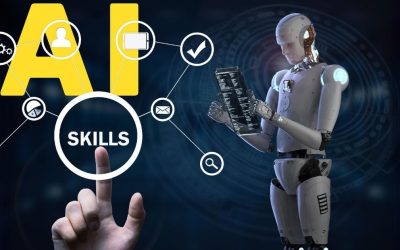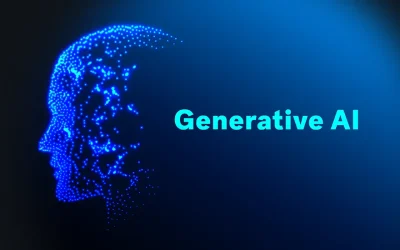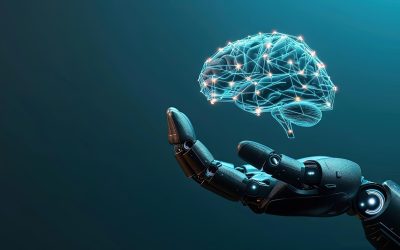In this article, we will explain what an AI agent is, how it works, and why it’s driving the next big wave in tech innovation. You’ll also learn what sets AI agents apart from traditional automation and how to get started with hands-on learning through an AI agent bootcamp.
Whether you’re a beginner or a developer looking to upskill, this guide will offer you a clear overview of the AI automation future.
What Is an AI Agent?
AI agents explained simply: they are intelligent software programs that can perceive their environment, make decisions, and act independently with little to no human input.
AI agents are autonomous or semi-autonomous software programs and you can think of them as digital assistants that do not passively follow instructions but analyze situations, solve problems, and carry out actions on their own.
AI agents can handle everything from understanding human language to managing complex tasks, such as scheduling meetings, conducting research, or even writing and deploying code. These agents can also work together in groups to complete larger workflows.
It is because of these features that many experts now claim that AI automation’s future will be brighter than most people previously expected!
Real-World Examples: AutoGPT, Devin, BabyAGI
- AutoGPT: A Multitasking Autonomous AI Agent
AutoGPT is one of the earliest and most well-known autonomous AI agents, designed using OpenAI’s GPT-4 and GPT-3.5 models.
It allows users to assign high-level goals, after which it independently generates subtasks, writes code, gathers information, and executes operations to fulfill the objective.
AutoGPT can write reports, summarize data, research online, and produce content in various formats, including creative writing and multilingual translations.
Plugins and APIs can improve AutoGPT’s capabilities, giving it access to external tools such as web browsers and file systems.
- BabyAGI: Structured, Goal-Oriented AI Task Executor
BabyAGI, created by Yohei Nakajima, is another autonomous agent.
It emphasizes sequential, structured task execution based on a central goal. With the help of tools like LangChain, OpenAI’s GPT-4, Pinecone for long-term memory, and Chroma for vector-based context recall, BabyAGI builds a dynamic task list and completes each step before generating the next one based on the results.
Unlike AutoGPT, BabyAGI is not dependent on internet access and uses its internal logic and stored memory to determine the most efficient path forward.
BabyAGI’s emphasis on long-term memory enables it to track progress over time, remember past tasks, and apply that context to new challenges.
This provides excellent cognitive consistency, which is required for reliability and efficiency in iterative development and decision-making.
- Devin AI: The World’s First Fully Autonomous AI Software Engineer
Devin AI, developed by Cognition Labs and marketed as the world’s first AI software engineer, is capable of working independently or collaboratively on complex software development tasks.
Devin allows engineering teams to pursue more ambitious goals and focus on creative, high-impact problems.
Devin can manage engineering workflows involving thousands of micro-decisions, such as debugging, designing software architecture, deploying apps, and fine-tuning machine learning models.
It remembers relevant context at each step, fixes its own mistakes, and continues to learn from experience. It functions within a sandboxed development environment equipped with essential tools like a shell, code editor, and web browser. So, its requirements are quite similar to what any human engineer would need.
How AI Agents Differ from Traditional Automation Tools
| Feature | Traditional Automation Tools | AI Agents |
| Flexibility | Rigid, rule-based | Adaptive and evolving |
| Task Complexity | Simple, repetitive | Complex, multi-step |
| Learning | Static | Learns from feedback/data |
| Autonomy | Requires orchestration | Operates independently |
| Context Awareness | Limited | High contextual understanding |
Key Skills for Becoming an AI Agent Developer
1. Learn Programming
Before you jump into AI agents, it’s important to get comfortable with programming. Python is a great choice—it’s easy to learn and has numerous libraries for AI.
2. Understand AI and Machine Learning
AI agents use machine learning to make decisions and improve. Start with the fundamentals: explore supervised, unsupervised, and reinforcement learning. You can find great resources online.
3. Know your data
Data is the heart of AI, so make sure to learn how to gather, clean, and prepare data for use in your models.
4. Explore Natural Language Processing (NLP)
If your AI agent will communicate with people, you need to understand NLP. Start with the basics like tokenization, then move on to more advanced topics like word embeddings and transformer models, which are essential for creating chatbots.
5. Learn how to integrate your models
Understand how to integrate your models with APIs and use cloud platforms like AWS or Google Cloud. Familiarizing yourself with tools like Docker will also prove beneficial.
6. Understand Search Systems
If your AI agent needs to retrieve information, learn how search algorithms work. Familiarize yourself with tools like Elasticsearch to match user queries with the right answers.
Learning Path: How to start building agents?
We’ve had the AI agent explained, explored what an AI agent is, and looked at real-world tools like AutoGPT for developers. But understanding their power is only the first step — the real impact comes when you start building and experimenting for yourself.
You can start by joining an AI agent boot camp. This boot camp will provide hands-on training, real projects, and mentorship to help you build your own intelligent agents.
Try learning the basic principles of how AI agents function. Those less familiar with coding can use no-code platforms that offer accessible ways to create AI agents without writing code. Then, as you grow more confident, specialized training can help you build agents that are more responsive, adaptive, and intelligent.
If the learning process ever seems difficult to you, take a quick look around; it will help you understand that the AI automation future is already unfolding. And the people shaping it won’t be passive observers — they’ll be creators, innovators, and builders. So, why not be one of them?
References
What is an AI agent and how will they impact the world? | McKinsey
Baby AGI Vs AutoGPT: A Comparison Of AI Giants – Dataconomy
Agentic AI Vs. Traditional Automation: How Businesses Can Adapt



